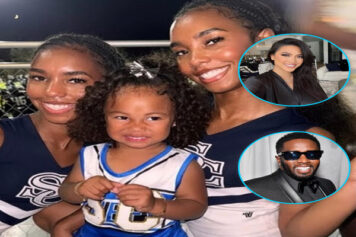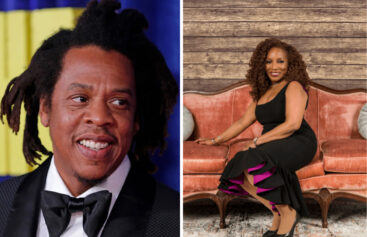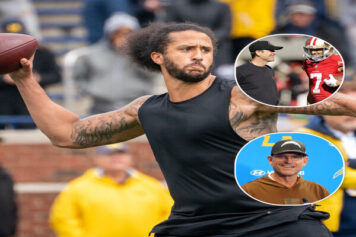History-making entertainers of color had a decision to make revealing two Americas.
This year, Super Bowl LIII was the most polarizing sports moment in America.
As one of the world’s biggest advertising platforms, it is a magnet for black entertainers. However, we are in a post-Colin Kaepernick kneel universe and at the gateway of Black History month, Super Bowl LIII is at a precipice.
No answers as to why Kaepernick, has not been offered an NFL contract. As a result, Black America has split down the middle.
When we look at our history makers, they faced an even larger challenge: to participate or not.
The Participation
The black entertainment vanguard is known to show up en masse for the Super Bowl. The one in Atlanta was no different especially with the peach state’s reputation as the South’s chocolate city.
Although, many black entertainers declined the NFL’s offer for the halftime show, Travis Scott and Big Boi accepted. Soul legend Gladys Knight sang the national anthem.
Unofficial concerts and parties were hosted by Fabolous, Jermaine Dupri, Diddy and more. Meek Mill and Cardi B performed at the Fanatics event with New England Patriots owner Robert Kraft dancing on the stage.
Jaime Foxx handed out food in the VIP section. Kevin Hart stormed the field where he was first denied entry into the Patriots celebration.
https://www.youtube.com/watch?v=_o1d8EXEs6I
Any meaningful social reform side meetings hosted by prominent black stars lost their impact to many. And then Black America had to contend with Civil Rights icons like John Lewis and the children of Dr. Martin Luther King against the backdrop of the NFL logo.
When does the rhetoric stop and the action speak louder than the words? This was the quandary for a Black America that had just begun celebrating its victories within oppression.
The Resistance
On the flipside, many of black America’s history makers remained vigilant during the celebration.
From Ava Duvernay to Nick Cannon and Common, many believed that viewing or attending the Super Bowl tantamount to black cultural sacrilege. This contingent represented the side of black America that refused to tune in, to give the NFL an inch on the ratings.
It is a new sacrifice for a people that have historically looked at the NFL as a tangible way out of poverty. Although akin to horse racing or hitting the lottery, the NFL has still produced multiple black millionaires.
It is the sole reason why those in black America go so hard for Colin Kaepernick’s stance because like Muhammad Ali he is losing prime athletic years. How do you reconcile a love for the game with the reality that their corporate bottom line has no room for black American compassion?
Reconciliation
Super Bowl LIII set off Black History month unofficially. If the NFL understood that they would treat the Kaepernick situation with a more deft hand in relation to the month’s significance.
Instead of making the fans faceoff over the national anthem protests why not add two anthems?
James Weldon Johnson wrote the Negro National Anthem. It is universally accepted by all Black Americans. The NFL and America’s general population views standing for the national anthem as respect for the troops.
However, if all troops are created equal, then the Negro National Anthem represents the Buffalo soldiers from the Civil War and the Tuskegee airmen during World War II.
Black America must reconcile with its own internal rift over the NFL issue but one thing is certain, a joint anthem will elicit not only a stand but ultimate pride.
Black America wants recognition of its pain and contributions. Anything less is inflammatory. With the NFL season now officially over, let’s join and put pressure for the inclusion of our anthem. Anything less is incendiary and keeps the division alive.



